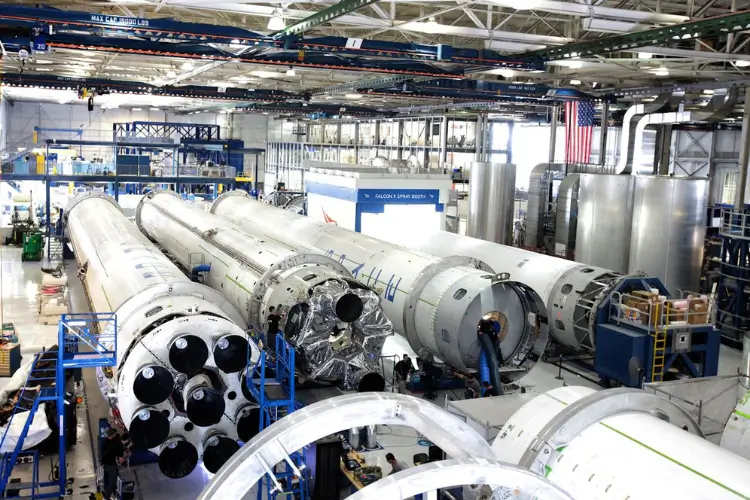Choosing the correct manway for industrial use calls for careful evaluation of several important criteria. For maintenance, inspection, and tank, vessel, and industrial equipment cleaning, a manway is a vital access point. The incorrect choice can cause operating difficulties, higher maintenance expenses, and can be dangerous situations. Thus, flawless industrial operations depend on a knowledge of the several factors influencing the appropriate decision.
Understanding Material Compatibility
One of the most important aspects to consider when selecting a manway is the material used in its construction. To prevent chemical reactions, corrosion, or contamination, the manway material must be compatible with the contents of the tank or vessel. Stainless steel is a popular material for firms that prepare food, pharmaceuticals, and chemicals due to its sanitary properties and resistance to corrosion. Applications requiring strength and longevity, particularly in high-stress settings, require carbon steel. To prevent material degradation, industries that use harsh chemicals can require fiberglass-reinforced plastic or particular metals.
Importance of Proper Sealing Mechanisms
A reliable sealing mechanism is critical for preventing leaks, maintaining pressure integrity, and assuring the safety of industrial activities. A good seal depends much on the kind of gasket applied in the manway. Rubber, silicone, and PTFE (polytetrafluoroethylene) provide varied degrees of chemical, temperature, and pressure resistance. Further improving the seal and lowering the possibility of leaks that can cause dangerous circumstances is a safe clamping or bolting system. In sectors like food and beverage manufacturing, where hygiene is a first concern, correct sealing also helps to avoid contamination. Selecting the appropriate sealing mechanism guarantees the dependability of operations and lowers maintenance expenses.
Considering Regulatory and Safety Standards
Selecting a manway requires strict safety and regulatory criteria that apply to industrial uses as well. Following industry standards like ASME (American Society of Mechanical Engineers), FDA (Food and Drug Administration), and OSHA (Occupational Safety and Health Administration guarantees that the manway satisfies the needed safety and performance criteria. Legal repercussions, operational closures, and even worker safety risks follow from non-compliance. For sectors involving combustible materials, following fire and explosion safety guidelines is also absolutely vital. Making sure the chosen manway satisfies all pertinent rules protects staff members and equipment, therefore lowering the chance of workplace accidents.
Evaluating Durability and Long-Term Performance
The long-term performance of a manway is heavily determined by durability. A good manway should withstand mechanical stress, environmental elements such as harsh chemicals, and extreme weather conditions. Purchasing a long-lasting option reduces the need for frequent replacements and helps to decrease overall maintenance costs. Surface coatings, welding processes, and construction quality all help to extend the life of the manway. Additionally, companies that handle liquids and chemicals that might degrade inferior materials over time require corrosion resistance. Choosing a sturdy manway improves dependability in industrial applications and ensures a longer service life.
Ensuring Compatibility with Existing Equipment
When selecting a manway, ensure that it is compatible with the current equipment and design. Mismatched parts can cause leaks, installation issues, and operating inefficiencies. For a perfect fit, structural support, bolt patterns, and flange connections must all be consistent with the existing setup. Selecting a manway that fits the design reduces the risk of alterations or increased installation costs. Correct compatibility enhances overall system performance and simplifies future maintenance requirements.
Sourcing from a Reliable Supplier
The manufacturer and supplier mostly determine the quality and dependability of a manway. Working with a respectable provider guarantees that the manway is built using premium materials and satisfies industry requirements. Before making a purchase, one must confirm the track record, certifications, and customer reviews of the source. To assure performance, a dependable supplier offers warranties, technical support, and comprehensive product specs. You can buy high-quality manways for tanks from a reputable online supplier that provides a selection of choices catered to particular industry needs which is vital for industrial purposes. Making sure the provider satisfies quality criteria improves the chosen manway’s longevity and performance.
Conclusion
Selecting a manway for industrial use calls for careful assessment of material compatibility, pressure, and temperature resistance, sealing mechanisms, regulatory compliance, and durability. Every one of these elements is quite important for guaranteeing long-term performance, safety, and operational effectiveness. Furthermore, adding to the dependability of the chosen manway is appropriate accessibility and simplicity of maintenance. While interoperability with current equipment guarantees flawless integration, customizing possibilities let businesses tailor the design to particular demands.




